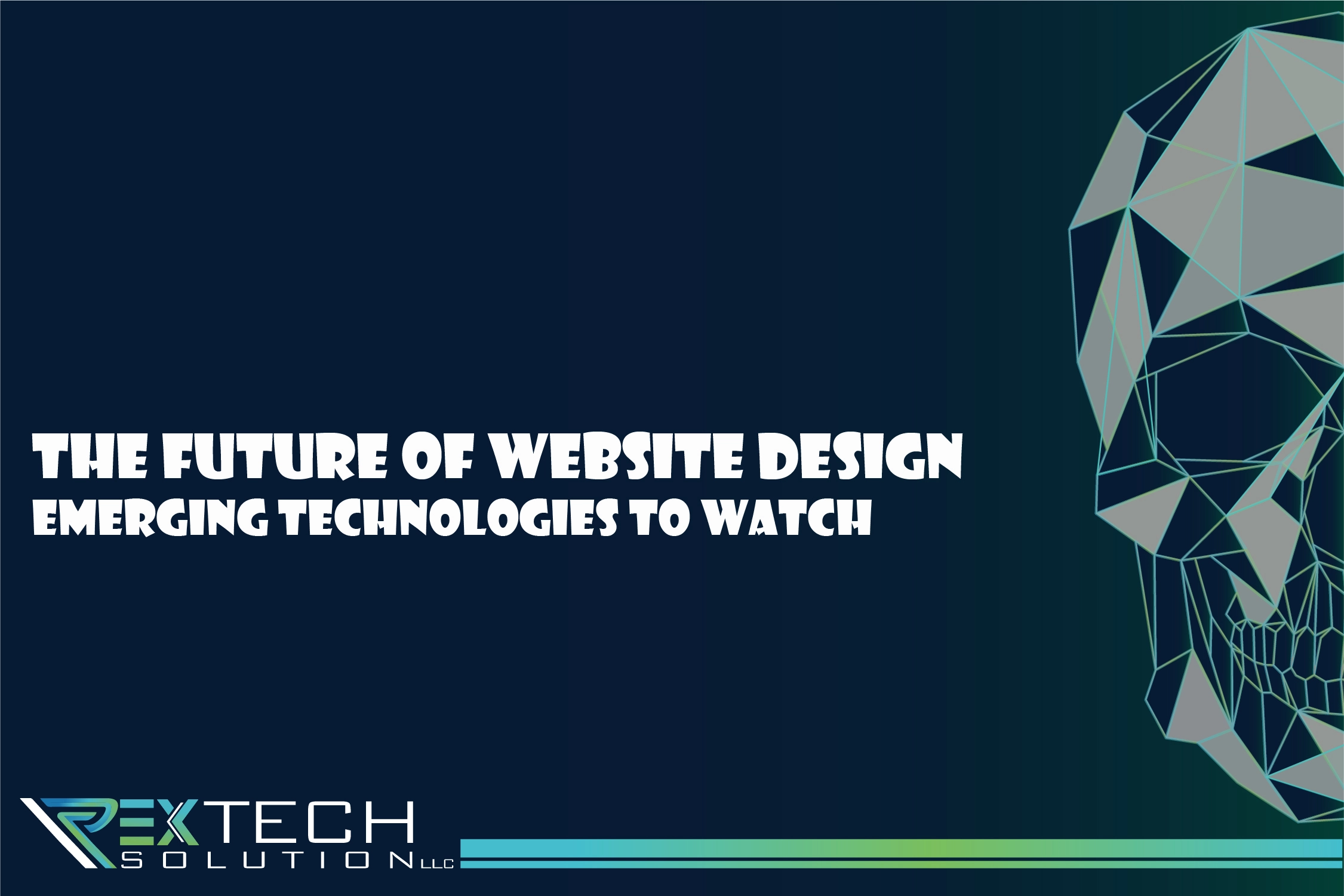The field of website design is at the forefront of innovation in the constantly changing internet scene. Remaining ahead of the curve is essential for organizations to sustain relevance and engagement as technology develops and consumer expectations change. The progress of website design has been continuous, from the rise of mobile surfing to the significance of user experience (UX) design. A number of new technologies appear poised to have a significant impact on the future of website design. We’ll examine these trends and their possible effects on the digital environment in this essay.
1. Artificial Intelligence (AI) Integration
Website design is about to undergo a revolution thanks to artificial intelligence, which will make user experiences more intuitive and individualized. Chatbots that are driven by AI, for instance, can improve customer service by offering immediate assistance and direction. Furthermore, AI algorithms are capable of analyzing user behavior to adjust the design, content, and navigation of websites instantly. AI will become more and more seamlessly integrated into website design as it develops, leading to extremely customized and responsive user interfaces.
2. Voice User Interface (VUI)
Voice user interfaces are starting to play a bigger role in website design as voice assistants like Siri and Alexa gain in popularity. Audio commands can be used by users to interact with websites through VUI, providing a hands-free and simple surfing experience. Voice search optimization and natural language processing will become crucial components of website design.
3. Augmented Reality (AR) and Virtual Reality (VR)
Because AR and VR technologies provide immersive and interactive experiences, they have the potential to revolutionize website design. Virtual tours of real places and virtual product demos are just two examples of how AR and VR may engage users in previously unthinkable ways. Websites that incorporate augmented reality and virtual reality aspects can improve storytelling, increase customer engagement, and set their companies apart in crowded industries.
4. Adaptive and Responsive Design
The use of mobile devices to access the internet will only increase the importance of adaptable and adaptive design concepts in the creation of websites. In order to guarantee a consistent and user-friendly experience across platforms, websites need to be able to smoothly adjust to different screen sizes and devices. Moreover, designers need to anticipate and account for changing user preferences and behaviors with the introduction of foldable smartphones and new form factors.
5. Simple and Minimalistic Designs
Because of their simplicity and clarity, clean, minimalist designs are becoming more and more popular in this age of information overload. Minimalist designs improve readability, navigation, and aesthetic appeal by getting rid of extraneous details and concentrating on what really matters. Embracing whitespace, crisp typography, and subtle animations can create a harmonious and memorable user experience that resonates with modern audiences.
6. Dark Mode
Dark mode, which is defined by dimmed brightness and dark color schemes, has become a well-liked design trend for a variety of platforms and apps. Beyond aesthetic appeal, dark mode has useful advantages like less eye strain, longer battery life (for OLED screens), and better visibility in low light. Designing websites with dark mode choices allows them to adapt to the interests of users and offer more accessibility.
Suggested Read: Website Design for Generation Z: Catering to the Next Wave of Consumers
Conclusion
As the digital landscape continues to evolve, website design will remain a dynamic and influential aspect of online presence. By embracing emerging technologies such as artificial intelligence, voice user interfaces, augmented reality, and minimalist design principles. Businesses can create immersive, personalized, and user-centric experiences that resonate with modern audiences. The future of website design lies in innovation, adaptation, and a relentless focus on meeting the evolving needs and expectations of users.
In conclusion, staying abreast of these emerging technologies and design trends will be essential for businesses seeking to thrive in the competitive online marketplace. At RexTech Solutions, we understand the importance of staying ahead of the curve in website design. With our comprehensive suite of services including logo design, branding, website development, video animation, digital marketing, and SEO, we are committed to helping businesses leverage the latest technologies and design trends to achieve their online objectives. By partnering with RexTech Solutions, businesses can ensure that their online presence remains cutting-edge, engaging, and impactful.

